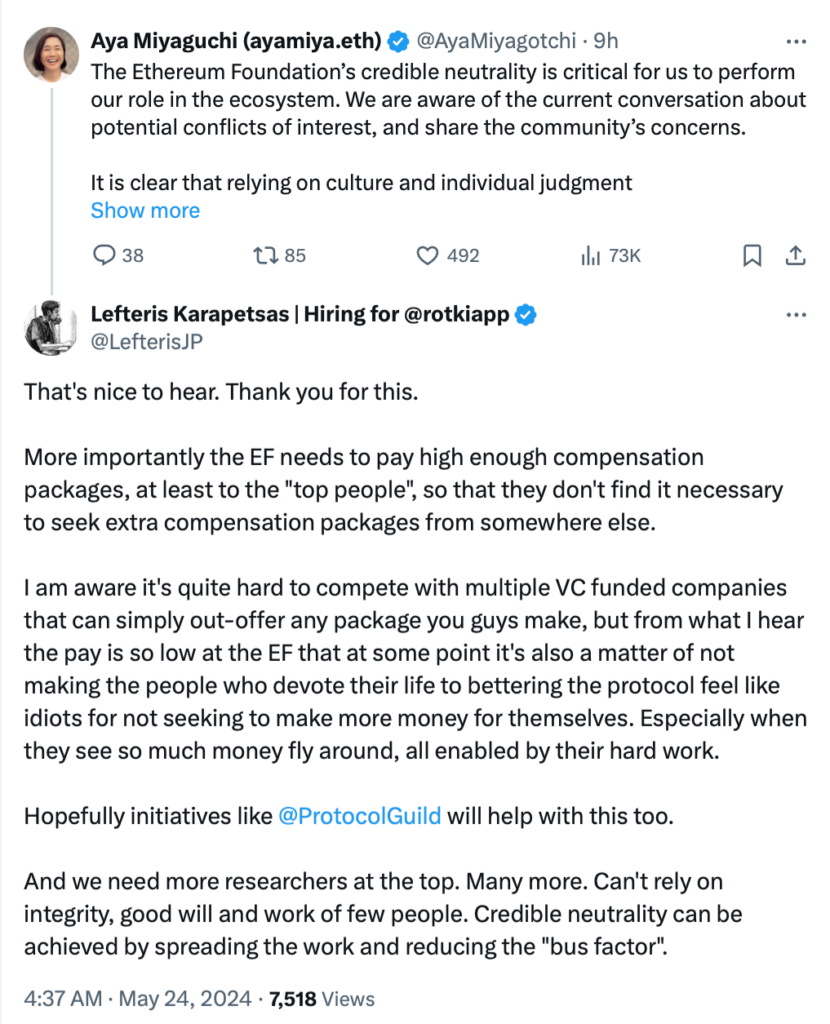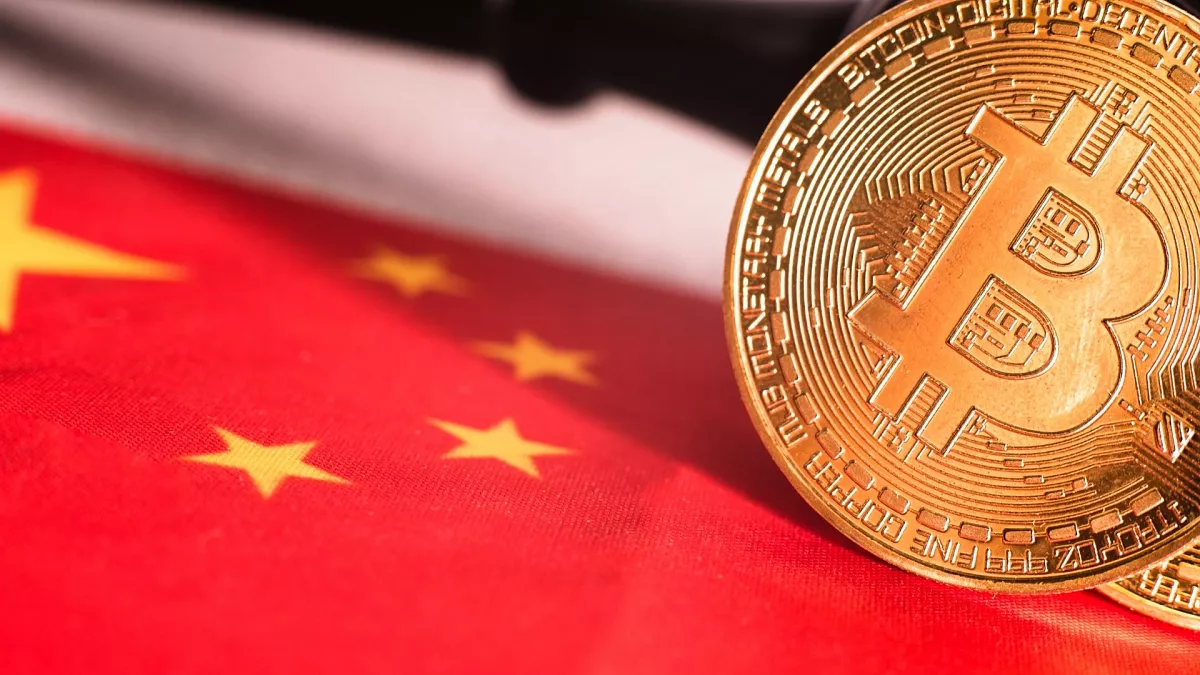Ethereum Foundation sets policy on conflicts of interest after researchers accept multimillion-dollar positions at EigenLayer.
The Ethereum Foundation will implement a policy regarding conflicts of interest, according to a May 24 statement by executive director Aya Miyaguchi. Controversy in the cryptocurrency community surrounded ties between the foundation and EigenLayer developers before the announcement.
Two Ethereum researchers became paid advisers at the EigenFoundation during the week that followed Miyaguchi’s declaration. The appointment of Justin Drake to EigenFoundation was officially declared in an extensive X post on May 19.
He stated that he would reinvest the “millions of dollars” in incentives he received from EigenFoundation into the Ethereum ecosystem. The next day, Dankrad Feist issued a lengthy announcement of a similar nature. Feist confirmed the receipt of “a substantial quantity of tokens,” further stating:
“I do not believe that they will change or influence my positions on how the core protocol should be developed, but I believe that the community should know about this, so that they can keep me accountable.”
Both researchers stated that they were not acting as representatives of the Ethereum Foundation and were personally affected by the posts.
Drake pledged to maintain a critical stance towards EigenLayer, while Feist declared his intention to “consider opposing viewpoints.” Mixed reactions greeted the researchers’ actions. Regarding Drake, ZkSecurity co-founder David Wong tweeted on X:
“This is some next level transparency. You have to love the EF people for their integrity, really. I don’t know if we deserve these people.”
However, numerous commenters voiced skepticism. “Are you for real? “He disclosed the information solely because Cobie leaked it,” one replied to Wong.
Cobie, a cryptocurrency trader and co-founder of Ethereum inquired with Vitalik Buterin, the co-founder of Ethereum, regarding foundation staff’s connections to EigenLayer the day before Drake disclosed his adviser status. An additional individual questioned Feist:
“You are keeping the 20M for yourself but you don’t believe in the power of incentives? […] lol”
“It is evident that relying on culture and individual judgment has not been adequate [to maintain the foundation’s credible neutrality], and we have been developing a formal policy to address this issue for some time,” Miyaguchi wrote in her X post. She pledged additional details would be forthcoming.

Drake stated that a third Ethereum Foundation member had investor connections to EigenFoundation. He did not identify the person.
EigenLayer is a layer-2 restacking protocol developed by Ethereum. It enables validators and node administrators of Ethereum to generate fees by restacking liquid Ether ETH tickers that they have staked for a total of $3,733.
The assets in question may be deployed on EVM platforms like Lido, potentially utilizing ETH acquired through said platform. Alternatively, they may employ sidechains or non-EVM blockchains to validate and fortify themselves. They are thus capable of placing double bets on the same assets.
EigenLayer was partially released on the Ethereum mainnet in April 2023, after its initial release on the Ethereum Goerli testnet.



